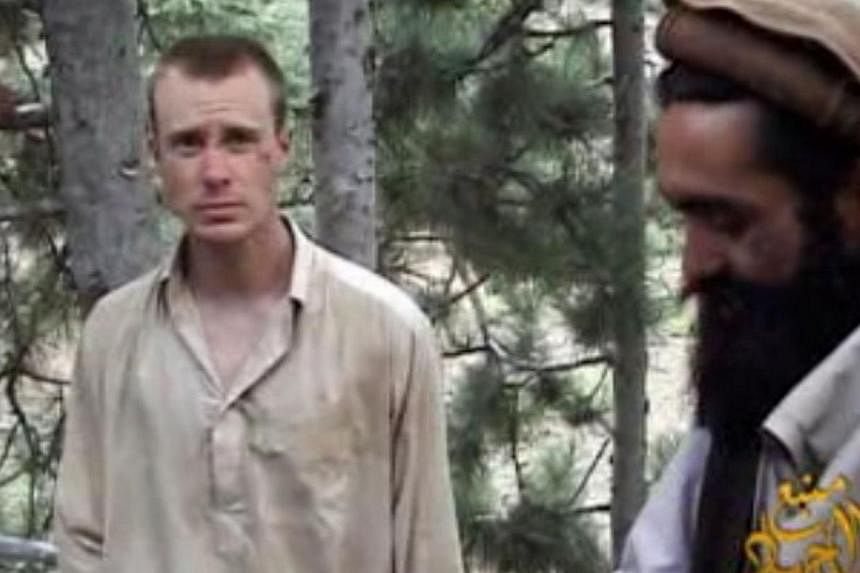MIRANSHAH, Pakistan (AFP) - Freed United States soldier Bowe Bergdahl developed a love for Afghan green tea, taught his captors badminton, and even celebrated Christmas and Easter with the hardline Islamists, a Pakistani militant commander told AFP on Sunday.
Army Sergeant Bergdahl, the only US soldier detained in Afghanistan since the war began in 2001, was released on Saturday in exchange for the freeing of five senior Taleban figures held at Guantanamo Bay, in a dramatic deal brokered by Qatar.
Sgt Bergdahl's almost five years in captivity saw him transferred between various militant factions along the volatile Afghanistan-Pakistan border, finally ending up in Pakistan's North Waziristan tribal district, according to militant sources.
A commander of the Haqqani network, a militant outfit allied with the Taleban with ties to Al-Qaeda, on Sunday painted a picture of a man who adjusted to his new life by engaging with his captors while clinging to aspects of his own identity.
"He was fond of kawa (Afghan green tea). He drank a lot of kawa all day, which he mostly prepared himself," the commander told AFP by phone from an undisclosed location in Pakistan's tribal areas.
Over time, Sgt Bergdahl, now 28, grew fluent in Pashto and Dari, he said.
Unlike the militants, who were mainly ethnic Pashtuns known for their voracious appetite for meat, Sgt Bergdahl "liked vegetables and asked for meat only once or twice a week", the commander said.
While the militants attempted to teach the soldier about Islam and provided him with religious books, he preferred more earthly pursuits.
"He would spend more time playing badminton or helping with cooking," the militant chief said.
"He loved badminton and always played badminton with his handlers, in fact he taught many fighters about the game," he added.
And the Idaho native made a point of celebrating the Christian festivals he was accustomed to back home, inviting his captors to participate.
"He never missed his religious festivals. He used to tell his handlers they were coming up weeks before Christmas and Easter and celebrated it with them," he said.
Mr Imtiaz Gul, a security analyst, said the militants would have regarded Sgt Bergdahl as a high-value asset and harming him would have had a negative impact on their propaganda efforts.
"These groups usually treat hostages that way," he said.
The insights into Sgt Bergdahl's life are the clearest to emerge since he was captured in eastern Afghanistan in June 2009 and appeared in a Taleban video a month later.
"I was captured outside of the base camp. I was behind a patrol, lagging behind the patrol and I was captured," Sgt Bergdahl said in the video, later growing distraught when discussing his family.
According to the commander, Sgt Bergdahl then came under the custody of the late Mullah Sangeen Zadran, a key leader in the Haqqani network.
An Afghan Taleban source added that Sgt Bergdahl fell into the group's hands after initially being captured by a criminal outfit linked to the Taleban.
Militant sources disagree over the circumstances surrounding his capture, but several - then and now - described him as being "drunk". The US military has never commented on the issue.
"Sangeen kept him in Paktika, Paktia and parts of Khost before bringing him to the Pakistan-Afghanistan border," the Haqqani commander said, referring to districts located in eastern Afghanistan.
Zadran was killed by US drone strike in September 2013, after which Sgt Bergdahl was sent on to the Pakistani tribal zone of North Waziristan, where the feared Haqqani network - known for their spectacular attacks on foreign forces - are headquartered.
Following his capture, Sgt Bergdahl went on to appear in several more videos, sometimes appearing gaunt and taking a hostile line against the US-led war effort.
Attention is now likely to focus on whether he was coerced into making those statements as well as unravelling the mysterious nature of his capture.

